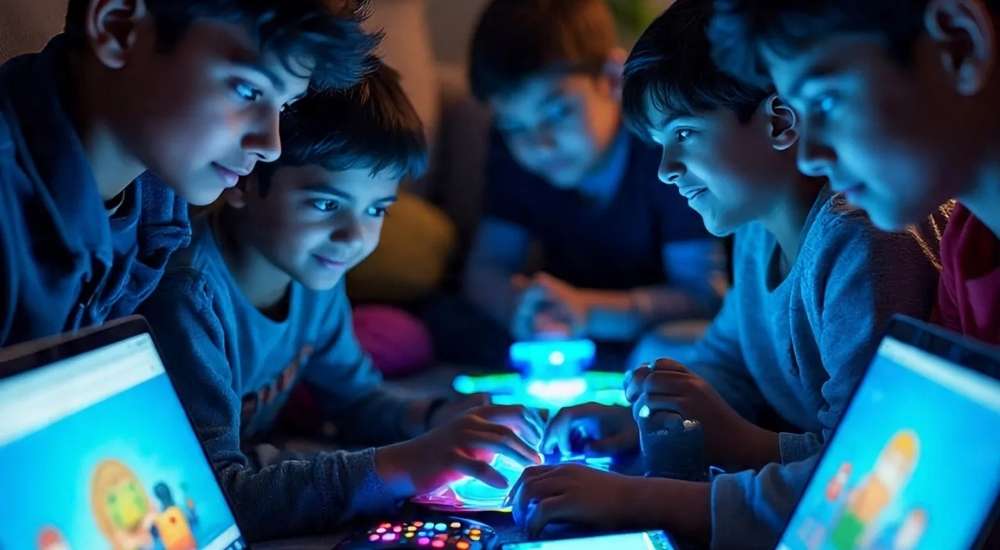Unplugged Childhood: Tackling Screen Addiction and Raising Digitally Healthy Kids

In today’s hyper-connected world, screens have become a digital babysitter. From cartoons during breakfast to mobile games before bedtime, children are spending more time than ever glued to devices. While technology has its place in modern parenting, unchecked screen use is now emerging as a critical child health concern.
What is Digital Addiction in Children?
Digital addiction refers to excessive and compulsive use of digital devices—TVs, tablets, smartphones, and computers—to the extent that it interferes with a child’s physical, emotional, social, and academic development.
Warning Signs:
- Restlessness or tantrums when devices are taken away
- Constant craving for screen time
- Reduced interest in physical play or hobbies
- Poor sleep patterns and fatigue
- Difficulty focusing in school or social settings
According to a study published in JAMA Pediatrics, even 1–2 hours of screen time daily can negatively affect children’s cognition, particularly language development and executive function in preschoolers.[1]
How Does Screen Time Affect Children? [2]
- Brain Development: For children under 5, screen overuse can slow language acquisition, reduce attention span, and delay emotional regulation.
- Sleep Disruption: Blue light from screens suppresses melatonin, disrupting natural sleep cycles and leading to behavioral issues.
- Physical Inactivity: Replacing active play with screen time is directly linked to childhood obesity, poor posture, and even vision problems.
- Mental Health Risks: Increased screen time is associated with anxiety, irritability, and depression, especially in tweens and teens
Screen Time Guidelines by Age [3]
| Age Group | Recommended Screen Time |
|---|---|
| 0–2 years | Avoid screens altogether |
| 2–5 years | Maximum 1 hour/day of supervised use |
| 6–12 years | Consistent limits; not more than 2 hours |
| 13+ years | Boundaries based on quality & usage |
Strategies to Raise Digitally Healthy Kids
1. Be a Role Model
Children emulate parents. Limit your own screen time and engage in offline activities as a family.
2. Create Screen-Free Zones
Designate areas like bedrooms and dining tables as device-free spaces.
3. Set Time Limits with Structure
Use tools like parental control apps and digital timers. Teach children to use screens for creation, not just consumption.
4. Encourage Real Play
Outdoor activities, board games, art, music, or gardening can effectively replace passive screen time.
5. Watch Together, Not Alone
Co-viewing helps children understand what they see and promotes conversation. Turn screen time into shared learning experiences.
6. Tech-Free Bedtime
Turn off all screens at least one hour before bed. Use this time for stories, music, or mindfulness.
“It’s not just about reducing screen time—it’s about building connection through healthy, meaningful alternatives.” — Dr. Vivek S, Pediatrician and Child Behavior Specialist
Many doctors now advocate for “digital hygiene” as part of routine child wellness checks.The goal isn’t to ban all screens—rather, it’s to help children develop a healthy relationship with technology, where curiosity, creativity, and connection aren’t lost to endless swipes and scrolls.
Nellikka.life Recommends:[4]
- Stay tuned for our upcoming digital detox checklist for families
- Free printable “screen-time contract” for children
- Child psychologist Q&A sessions — coming soon on our YouTube channel
#UnpluggedChildhood #NellikkaLife #ScreenTimeAwareness #DigitalDetox #HealthyParenting #ChildWellness #MindfulTechnology





